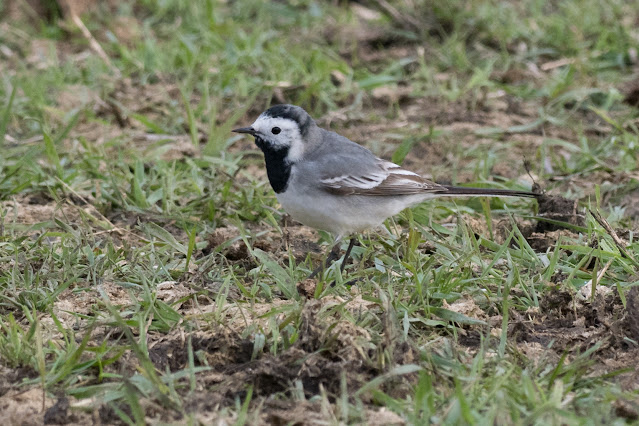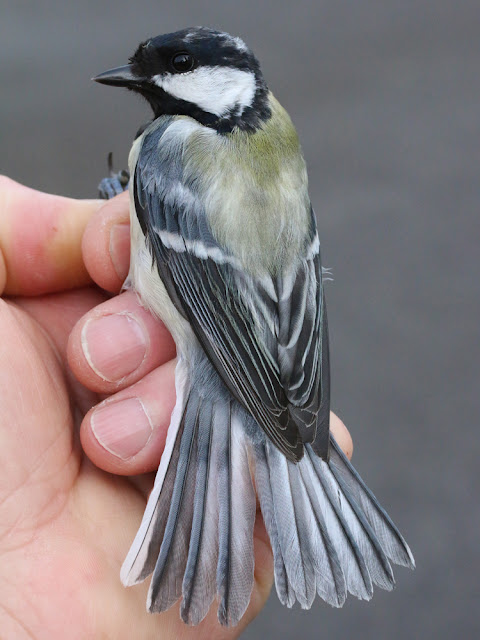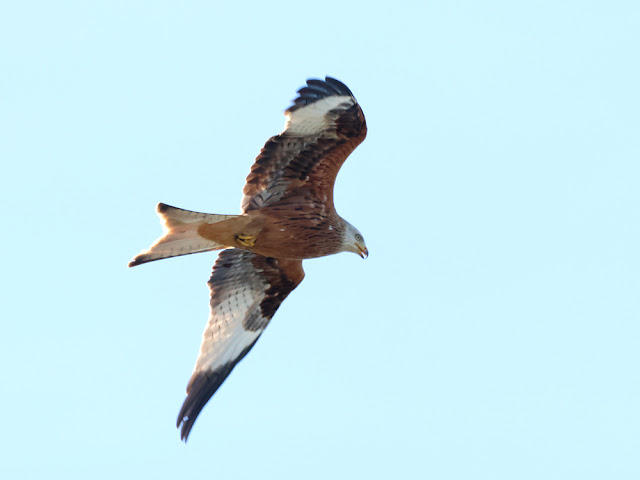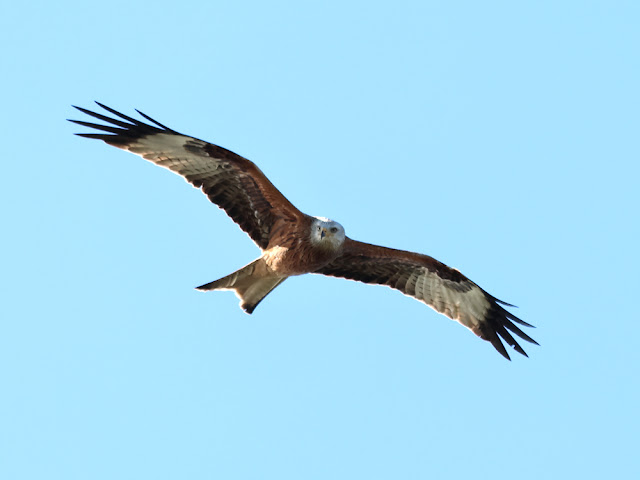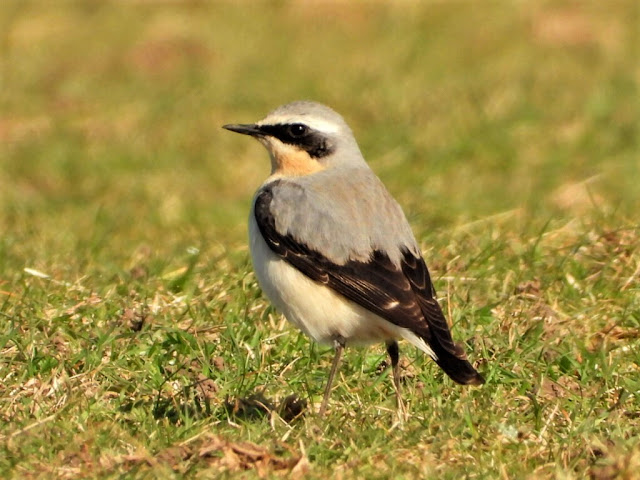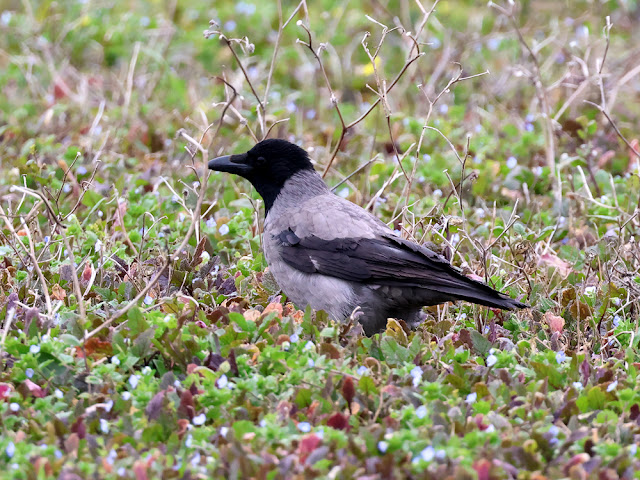An uptick in the air temperature prompted some migrant movement today, with a fair bit of gull passage offshore, a handful of new arrivals on the ground and, particularly as the morning wore on, visible passage getting going overhead. Gulls provided the bulk of the numbers, with 193
Kittiwakes, 126
Common Gulls, 10
Mediterranean Gulls, 8
Lesser Black-backs and 4
Black-headed Gulls through of the Bill and 186
Common Gulls, 35
Black-headed Gulls and 7
Lesser Black-backs through off Chesil; also on the sea, 155
Gannets, 7
Red-throated Divers and singles of
Manx Shearwater and
Curlew were additions off the Bill. Grounded arrivals weren't at all plentiful but did include the first
Firecrest of the season at the Bill. As might be expected,
Meadow Pipits made up the numbers overhead with 48 dribbling in over the Bill but amongst the miscellany of also-rans a
Greylag Goose over the Bill and Chesil, and a
Woodlark over the Bill were both firsts for the year. The lingering
Hooded Crow hybrid was again at the Bill, whilst winterers making the day's tally included 4
Eider and 3
Black-necked Grebes in Portland Harbour and 230
Dunlin and 3
Bar-tailed Godwits at Ferrybridge.
The Greylag Goose over Chesil: never a regular visitor to these parts and at this juncture just possibly of more distant origin than the majority of plastic waterfowl forever doing the rounds of the hinterland © Joe Stockwell:
Regular readers of the blog will know we hold Black-headed Gulls in high regard: at the Bill they're scarce enough to never be taken for granted, whilst migrating flocks like these zipping through off Chesil are something we still get excited about seeing © Joe Stockwell:
The Bill Hooded Crow: written off as a duff hybrid but actually a pretty smart bird and nice to have about amongst the run-of-the mill corvids © Martin Cade:












